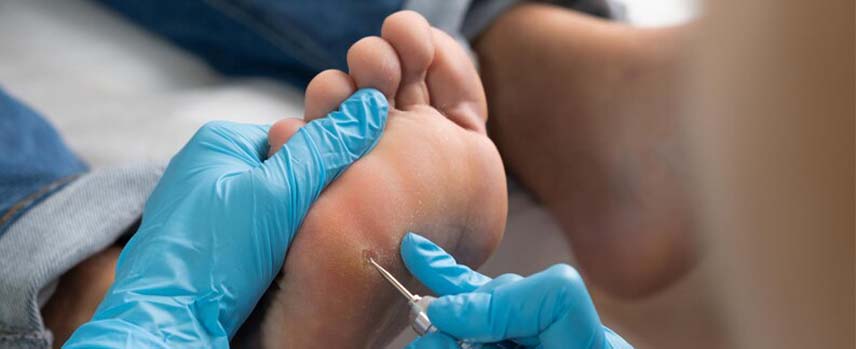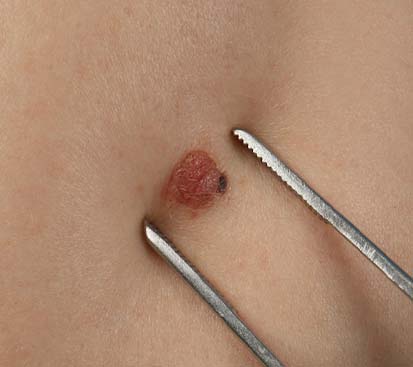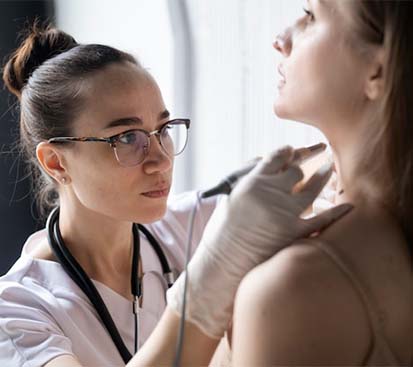
A wart is a small, rough, and often grainy skin growth caused by the human papillomavirus (HPV). These growths can appear on different parts of the body, such as the hands, feet, face, and genitals. Although warts are generally harmless, they can spread easily through direct contact with an infected person or by touching contaminated surfaces.
Warts can vary in size and appearance, ranging from tiny flat bumps to larger, cauliflower-like growths. While some warts may disappear on their own, others may persist or spread without treatment. Certain types of warts can also cause discomfort, pain, or cosmetic concerns, especially when they appear in visible areas.
At our wart treatment hospital in Kolathur and wart clinic in Mogappair, we offer comprehensive care for diagnosing, treating, and managing warts. Our experienced specialists use advanced techniques to ensure effective removal, minimal discomfort, and reduced risk of recurrence. Whether you're dealing with a single wart or multiple growths, our expert team provides personalized care for optimal results.
Warts may present a variety of symptoms depending on their type and location. Some warts are painless and go unnoticed, while others may cause discomfort or irritation. Common signs and symptoms of warts include:
If you notice any unusual skin growths, especially those that change in size, color, or texture, consult our specialists at our wart treatment hospital in Kolathur or wart clinic in Mogappair for expert evaluation and personalized treatment.


While some warts may respond to over-the-counter treatments or topical medications, surgical intervention may be required in certain situations. Surgery is often recommended in the following cases:
At our wart treatment hospital in Kolathur and wart clinic in Mogappair, our skilled surgeons use advanced techniques such as laser surgery, electrosurgery, and excision to ensure safe and effective wart removal with minimal scarring. Our procedures are designed to promote faster recovery and minimize the risk of recurrence.
Accurate diagnosis is crucial to determine the most suitable treatment for warts. Our specialists follow a structured diagnostic process to ensure proper evaluation and care.Our specialists offer a variety of treatment options to effectively remove warts and prevent recurrence. These include:
- Physical Examination: Our doctors thoroughly examine the wart’s size, shape, and texture to identify its type and determine the best treatment method.
- Dermoscopy: This advanced diagnostic method uses a magnifying tool to closely analyze the wart’s surface and underlying features, helping confirm the presence of HPV.
- Biopsy (if needed): In rare cases, a biopsy may be performed to rule out other skin conditions or confirm if the wart is linked to a more serious concern.
- Cryotherapy (Freezing Treatment): This involves applying liquid nitrogen to freeze and destroy the wart tissue. Over time, the frozen wart falls off, leaving healthy skin behind. This method is highly effective for common and plantar warts.
- Electrosurgery and Curettage: This procedure involves burning the wart using heat generated by an electric current, followed by carefully scraping it away. It is particularly effective for larger or stubborn warts.
- Laser Therapy: Laser treatment uses concentrated light beams to target and destroy wart tissue without harming surrounding skin. This method is ideal for deep-rooted or recurring warts.
- Topical Medications: For smaller or newly developed warts, our specialists may prescribe topical creams or ointments containing salicylic acid or antiviral agents to gradually shrink and eliminate the wart.
- Surgical Excision: The most effective treatment for sebaceous cysts involves surgical removal. Our surgeons ensure precise excision of the cyst along with its sac to prevent recurrence. This method is highly effective for both small and large cysts.
- Incision and Drainage: If the cyst is infected, our specialists may first drain the cyst to relieve discomfort. Once the infection subsides, complete removal may be scheduled.
- Antibiotic Therapy: If a sebaceous cyst becomes infected, antibiotics may be prescribed to control the infection before or after surgical intervention.

Our team at the wart treatment hospital in Kolathur and wart clinic in Mogappair ensures personalized treatment plans that suit your condition, promoting faster recovery and long-term relief. We prioritize patient comfort, safety, and effective results to help you regain healthy, wart-free skin.